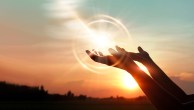Alexis de Tocqueville, the well-known, early 19th-century French chronicler of democracy in America, recognized the vital role religion plays in shaping American life. “This civilization is the result … of two quite distinct ingredients, which anywhere else have often ended in war but which Americans have succeeded somehow to meld together in wondrous harmony; namely the spirit of religion and the spirit of liberty.”
Almost two centuries after de Tocqueville penned these words, the “spirit of religion” remains a powerful force in shaping the views and values of the American people. To better understand the connections between Americans’ religious beliefs and practices and their social and political views, the Pew Research Center’s Forum on Religion & Public Life has undertaken an extensive survey on religion in America. The first report of the U.S. Religious Landscape Survey, published in February 2008, detailed the religious affiliations of the American public and documented the impact of changes in affiliation, immigration and other factors. The report also explored the great diversity of religious traditions and groups in the U.S. and detailed their demographic characteristics.
The latest release of the Landscape Survey includes a wealth of information on the religious beliefs and practices of the American public, including the importance of religion in people’s lives, belief in God and the afterlife, attitudes toward the authority of sacred writings, frequency of worship attendance and prayer, and participation in religious activities outside of worship services, including the religious education of children. The study also probes the public’s views on religion’s impact on society, conflicts between religion and society, religion and morality, and the links between religion and life satisfaction.
Using the responses to these and other survey questions, the report examines the diversity of opinion that exists on a variety of political and public policy issues among and within the country’s various religious groups, including people who are unaffiliated or are only nominally affiliated with a particular religious tradition. These issues include ideological and partisan orientation; attitudes on abortion, homosexuality, evolution and other social issues; views on the size and proper role of government, the environment and helping the needy; and opinions on foreign affairs.
The Landscape Survey draws primarily on a nationwide survey conducted from May 8 to Aug. 13, 2007, among a representative sample of more than 35,000 adults in the U.S., with additional oversamples of Eastern Orthodox Christians, Buddhists and Hindus. The study also takes advantage of the 2007 survey of American Muslims that was conducted in partnership with other projects of the Pew Research Center. In total, these surveys included interviews with more than 36,000 Americans.
In conjunction with the release of the Landscape Survey, the Forum has introduced some new features on its website, www.pewresearch.org/pewresearch-org/religion. The online presentation of the findings has been updated to incorporate the new material on religious beliefs and practices as well as social and political views. The site includes interactive mapping, dynamic charts that illustrate key findings and a variety of other tools that are designed to help users delve deeper into the material. The online tools provide easily accessible portraits of American religious groups, including such smaller groups as Buddhists, Hindus, Jews and Muslims.
Additionally, after the release of the February report, we surveyed a total of 400 people in Alaska and Hawaii, and their responses to the questions on religious affiliation, as well as key questions on religious beliefs and practices, are now available in the Maps section of the online presentation.
As we explain in the introduction to the first report of the Landscape Survey, there are many other approaches to collecting data on American religion, and each approach – including the one we used – has its limitations. We have endeavored to be as transparent as possible in explaining our methodology and its limitations. We appreciate the important work of others in this field, and we hope the Landscape Survey will be a valuable addition to the growing body of research on the role religion plays in the personal and public lives of Americans.
Luis Lugo Director, Pew Forum on Religion & Public Life




